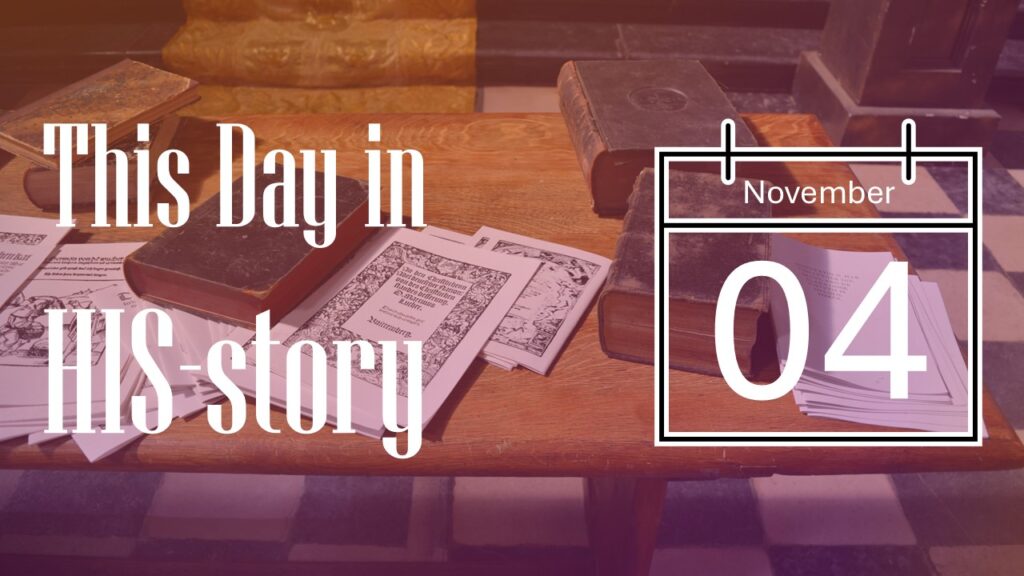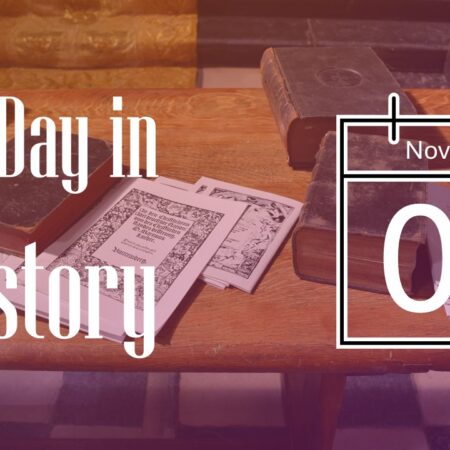
1836
HT: The One Year Christian History (Kindle Edition)
IN 1779 Charles Simeon entered King’s College at Cambridge University as an eager student with no particular allegiance to God. After three days he was appalled to learn that at Cambridge participation in the Lord’s Supper was mandatory. In just three weeks he would have to eat the bread and drink the wine at Communion. His initial reaction was that Satan was probably more prepared for the Lord’s Supper than he. An earnest soul, he determined that he must prepare himself immediately. He went out and bought the only IN 1779 Charles Simeon entered King’s College at Cambridge University as an eager student with no particular allegiance to God. After three days he was appalled to learn that at Cambridge participation in the Lord’s Supper was mandatory. In just three weeks he would have to eat the bread and drink the wine at Communion. His initial reaction was that Satan was probably more prepared for the Lord’s Supper than he. An earnest soul, he determined that he must prepare himself immediately. He went out and bought the only Christian book he knew, The Whole Duty of Man by William Law, the great English devotional writer. As he read and reread it, he cried out to God for mercy. By the time he took Communion, he had made himself ill with his intense reading, fasting, and prayer. Then as soon as he had taken Communion, he realized that Easter was coming when he would have to take it again. He sought out books on the Lord’s Supper and pored over them. He remembered the sins of his life and mourned over them. He sincerely tried to repent and to exercise self-denial. When Holy Week came, he read that in their sacrificial system the Jews transferred their sin to their sacrifice. The question entered his mind, May I transfer my guilt to another? Has God provided an offering for me to which I may transfer my sins?

On Wednesday of Holy Week he began to hope that he would find mercy. From Thursday through Saturday this hope increased more and more. Finally on Easter Sunday he awoke with these words on his lips: “Jesus Christ is risen today! Hallelujah! Hallelujah!” As he ate the bread and drank the wine of Communion, he felt a load being taken off his soul and a peace that he had never before experienced. He now knew that Jesus in his death had paid the penalty for his guilt and his sins. Charles Simeon grew in his faith and went on to become vicar of Holy Trinity Church, Cambridge, where he served for fifty-four years as one of England’s greatest preachers. On November 4, 1836, exactly a week before his death, Charles Simeon drank a glass of wine that his doctor had prescribed for him. Stretching out his feeble arms, he pronounced a blessing on those in his room, “May all the blessings which my adorable Savior purchased for me with his tears, yea with his own precious life blood, be now given to me to enjoy, and to my two dearest friends . . . and to my two dear nurses. . . . I shall drink no more of that wine until I drink it new with my Redeemer.” A week later he was with his Redeemer in his kingdom.
1884
CHARLES (C. T.) STUDD sat at the bedside of his beloved brother George, who hovered between life and death. Both were Christians but each had made an idol of cricket. In fact, Charles Studd was probably the best all-around player in his day (combined bowling, batting, and fielding). But George’s illness forced C. T. Studd to re-evaluate his priorities.
As night after night I watched by his bedside as he was hovering between life and death, God showed me what the honor, what the pleasure, what the riches of this world were worth. All these things had become as nothing to my brother.
Trying to learn what God would have him do with his life, he queried Christian friends, but got no assurance. So he went straight to God. Then he read an atheist tract that scoffed at Christianity, charging that those who claimed it lived tepid, inconsistent lives unconcerned for the souls of others. The atheist spelled out how a consistent Christian would act. Such a person would care nothing for the world but only to save souls.

Those words galvanized Studd. He determined to follow Christ consistently and wholeheartedly but realized he needed Holy Spirit power to do so. That is when he picked up Hannah Whitall’s The Christian’s Secret of a Happy Life. Realizing that he had kept himself back from God, he went down to his knees and submitted.
Soon his life’s work became clear. Attending the farewell of an acquaintance who was leaving for China to preach the gospel, he recognized that God would have him go, too. Hudson Taylor was in England recruiting for the China Inland Mission. Studd made an appointment to see him.
It was not long before I was off to Mr. Hudson Taylor, to tell him, if he was ready to take me, I was willing to go.
The two met on this day, 4 November 1884. What passed at the meeting seems not to have been recorded, but Hudson Taylor accepted Studd as an associate. Studd was one of seven notable Cambridge men who gave up secular careers to carry out Christ’s missionary mandate. Before they sailed, they held meetings throughout Britain; their fame drew large crowds to hear the gospel.
Studd worked in China for many years. There he met Priscilla Stewart, who accepted his offer of marriage (although he always insisted she proposed to him). Determined to live by faith, the pair divested themselves of Studd’s large inheritance, giving it all to support Christian work. They had four girls, a fact that became a testimony to the Chinese who had little regard for daughters and often killed female infants.
When the collapse of both Charles and Priscilla Studd’s health forced them to leave China, they returned to England to recuperate. They then worked seven years in India.
Finally, at an age when most people contemplate retirement, Studd went to inland Africa against the advice of doctors and friends and (hardest for him to bear) the pleas of Priscilla. Despite continual illness and severe asthma that often allowed him only a couple hours of sleep a night, he served there twenty years while Priscilla managed the work in England. They saw the gospel transform ethnic groups infamous for cannibalism, debauchery, and cruelty. Eventually, tribes that had warred ceaselessly against one another found peace in Christ and met together in huge outpourings of Christian fellowship.
Studd’s life was a continual banquet of faith and good humor. Once when he was desperately ill in Africa, he remembered the apostle James’s command that if anyone is sick he should have the elders anoint him with oil and pray. The only “elder” present was a twenty-year-old coworker. The only oil was kerosene, but the twenty-year-old anointed Studd with kerosene and Studd wrote joyfully,
How God did it I don’t know, nor do I care, but this I knew next morning, that whereas I was sick, nigh unto death, now I was healed. We can trust Him too little, but we cannot trust God too much.
The Studds and their friends founded the worldwide Evangelical Crusade. Without appeals for funds they were able to establish mission work on three continents. God provided workers and met their financial needs again and again.
